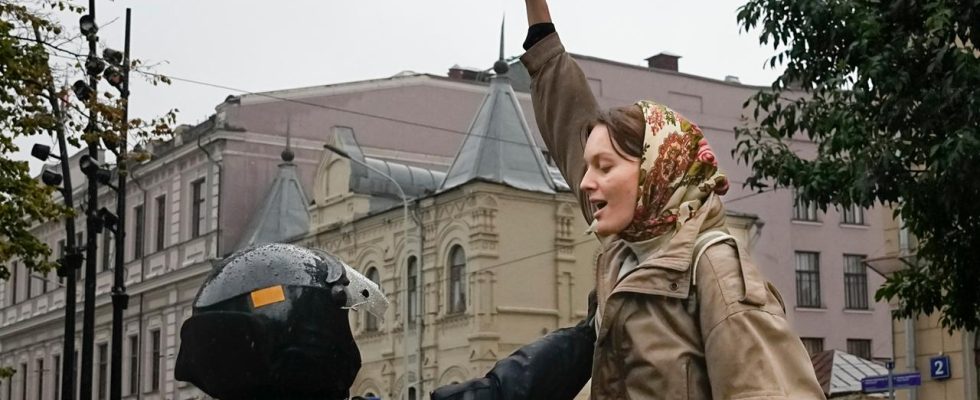Civil society no longer exists in Russia, and oppression in the country has escalated. This is the conclusion of the new Russia report submitted to the UN Human Rights Council.
What was already bad has become even worse: With aggression abroad – Russia’s attack on Ukraine – oppression at home has escalated. It was the last item on the agenda yesterday and the first this Friday: UN Special Rapporteur Mariana Katzarova informed the UN Human Rights Council about the situation in Russia – and spoke of a “total crackdown” of Russian civil society.
The situation has been steadily deteriorating for two decades, but since the Russian attack on Ukraine the development has been dramatic. One can no longer speak of “restrictions on civil society”: the civil society space has been “effectively eliminated” by the authorities. “There are no longer any independent media, civil society organizations have been closed.”
20,000 anti-war protesters arrested
Before the Human Rights Council, Katzarova also referred to the current trial in Moscow against Oleg Orlov, a board member of the human rights organization Memorial. He faces 15 years in prison.
The extent of state repression against anyone who expresses criticism is unprecedented in Russia’s recent history: more than 20,000 people were arrested and charged for taking part in peaceful anti-war demonstrations.
Russia does not recognize mandate
Bulgarian Mariana Katzarova was appointed special rapporteur on human rights in Russia last April. Moscow does not recognize this mandate. At the Human Rights Council, Russia’s representatives waived their right to comment on the report.
However, other states expressed themselves in Russia’s favor. The representative of China criticized the report as interference in the country’s internal affairs and spoke of a “politicization” of human rights. Zimbabwe said that without the consent of the country concerned, the Special Rapporteur’s mandate would fail to achieve its objective.
Katzarova has a clear answer to such objections: “My mandate is a voice for the people of Russia. That’s why it’s important to keep going, especially in these dark times for human rights.”
The mandate is due to be extended in October
Only 17 of the 47 member states of the Human Rights Council voted to appoint the special rapporteur last year. 24 countries abstained from voting. At the beginning of October, the Human Rights Council will decide whether the special rapporteur’s mandate will be extended.
Katharina Stasch, Germany’s UN ambassador in Geneva, says: “It won’t be easy. However, the international community has already clearly condemned Russia’s human rights violations on several occasions.” It is difficult to imagine “that the majority in the Human Rights Council will deny the oppressed in Russia and the victims of human rights violations a voice.”
Moscow wants to become a member of the Human Rights Council become
It is also difficult to imagine that Russia itself would become a member of the Human Rights Council again. But that’s exactly what Moscow has in mind: The Russian government is running for a seat on the United Nations’ highest human rights body this fall.
According to Ambassador Stasch, Russia must expect strong headwinds: “A country, a Russia, that systematically and blatantly violates human rights has no place in the Human Rights Council.” This is also stated in the founding documents of the Human Rights Council. “The Special Rapporteur’s report has once again clearly shown the extent to which Russia violates human rights.”
That’s why, said the German ambassador, they would do everything to ensure that Russia is not elected to the Human Rights Council again.

